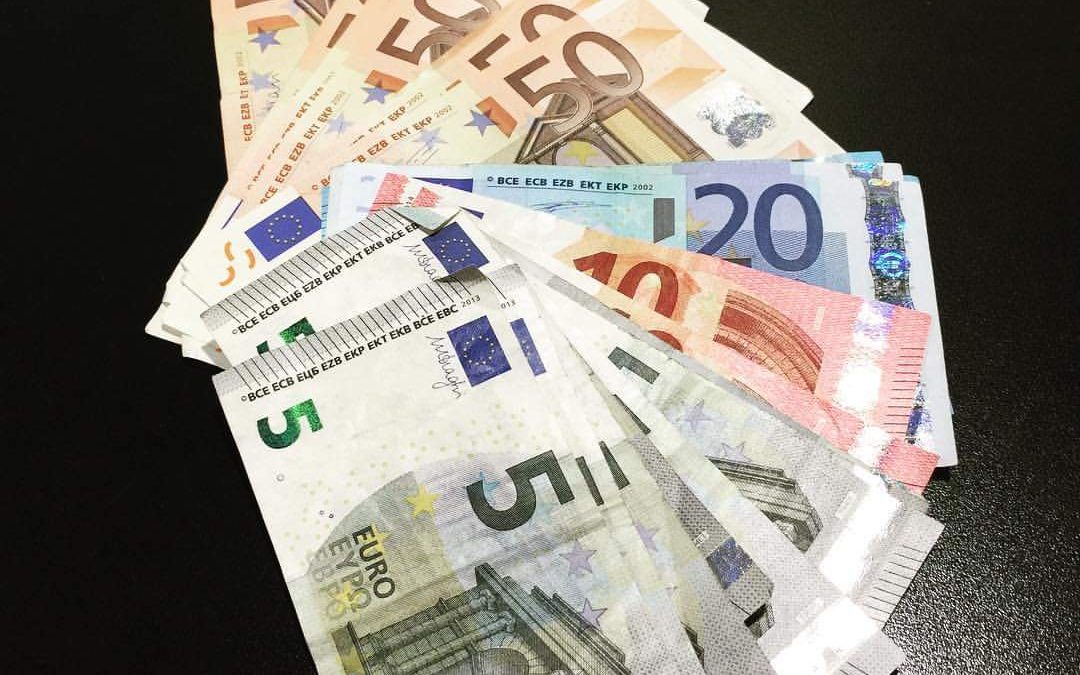–Sean Ross | Investopedia
Currency devaluation can occur in absolute and relative senses. A relative devaluation occurs when the foreign exchange value of one currency drops against the exchange value of other currencies.
For example, the British pound sterling may trade for more U.S. dollars today than it did yesterday. This does not necessarily mean, however, that the U.S. dollar is absolutely worth less than the day before in terms of real purchasing power. In either case, the economic roots of currency depreciation are dependent on the productive capacity of an economy and the size of its money supply.
Almost every major currency is controlled like a monopoly through legal tender laws. For this reason, governments and central banks control the factors that influence currency value. Even though these are not traditionally considered to be economic factors, they are nonetheless critical determinants.
Productivity and Absolute Currency Value
Money exists as a store of value. Employees trade the value of their working labor for a representative amount of money (in wages) and then trade that representative value for other goods and services in the market.
As an individual employee creates more value through increased productivity, she will see her salary increase proportionately. Her employer (or customers) must either give her more units of currency or more valuable units of currency.
If the money supply in a country is fixed but productivity increases, then each unit of currency must store greater value. If the productivity of an economy is fixed but the supply of currency decreases, then each unit of remaining currency must store greater value.
The opposite is also true. When productivity declines faster than the supply of money, the value of each unit of currency drops. The most common monetary phenomenon, inflation, is produced the other way around – the supply of money grows faster than productivity. There are more units of currency around to absorb productivity, so each one ends up representing less exchange value in the market.
Purchasing Power vs. Forex Value
The foreign exchange markets are particularly complex. This is partly because there are two types of forex traders. The first type of trader is looking to make a purchase in a foreign market, so he needs to convert one currency to another. The vast majority of these transactions are performed by banks or other major financial institutions on behalf of their domestic customers.
The second type of trader is simply looking to trade currency with a lower expected future value for currencies with higher expected future values. This currency speculation plays an important function in international markets, but it is forward-looking and doesn’t cleanly equate to current purchasing power or national productivity.
The wide range of possible factors that influence currency value in international markets includes the relative monetary policy between governments and central banks, differences in economic forecasts between one country and another, the differences in productivity between one set of workers and another, and the relative demand for the goods and services produced between different countries.
War, Disasters And Pandemics
Related posts
Global | Didi Angaye Earns A Distinction Award, Another Feather To The Cap
On a bright sunny day, in the month of July, 2024, the prestigious Staffordshire University located in the West Midlands of England organised its Award giving and Graduation ceremony to honour graduates of various educational programmes and courses which it offers. Didi Timipah Angaye,…
Olu Of Warri Bags Award In UK, Wife Advocates Return To Cultural Values
The Olu of Warri, Ogiame Atuwatse III, has received the Leadership and Community Development award at the 14th African Achievers Awards (AAA), which took place at the Parliament House, United Kingdom. The award was presented by a member of the House of Lords, London, Rt…
Brit Awards | Asake, Burna Boy And Other ‘New Cats’ Get Nominations
Nigerian singers Burna Boy, Asake, and Rema have been nominated for the 2024 Brit Awards. The nomination list for the annual music awards show was released on Wednesday 25, January 2024. Burna Boy and Asake made the ‘Best International Artiste’ category, while ‘Calm…
Brit Awards 2024 | The Full List Of Artist(e)s
This year’s Brits nominees have been revealed ahead of the ceremony in London in March. Dua Lipa is the first star confirmed to perform at the event – but how many awards is she up for? Musicians including Raye, Central Cee, J Hus and Blur are also…
Despite Increased Transfer Volume And Institutional Adoption, Bitcoin Stays Below $60K
Bitcoin’s price hovers around $59K as increased transfer volume indicates a stable demand among investors. CryptoQuant data indicates buyers are absorbing the panic selling pressure around the $57K price level. Bitwise’s latest report suggests that institutional investors are still buying Bitcoin despite the recent price…
Traders Focus On Meme Coins As Bitcoin, Ethereum And XRP Erase Recent Gains
Bitcoin, Ethereum and XRP dip under key support levels at $60,000, $2,600 and $0.60 respectively. Tron ecosystem’s meme launchpad SunPump generates over $1.1 million in revenue within twelve days of its launch. Tron network daily revenue reached a record high of $26.83 million on Tuesday,…
Top 10 Cryptocurrencies To Invest in January 2024
-Michael Adams From Bitcoin and Ethereum to Dogecoin and Tether, there are thousands of different cryptocurrencies, making it overwhelming when you’re first getting started in the world of crypto. To help you get your bearings, these are the top 10 cryptocurrencies based on their market…
The Risk And Reward Of ChatGPT In Cybersecurity
Juan is an experienced CTO with a demonstrated history of working in the computer and network security industry. He is an information technology professional skilled in SAP and Oracle applications, computer forensics, vulnerabilities research, IPS/IDS and information security. Unless you’ve been on a retreat in…











